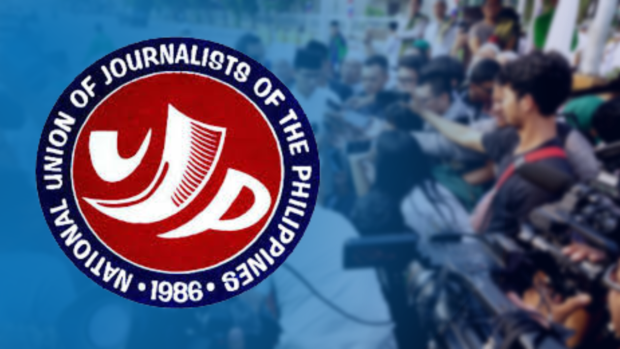NUJP chair says Sotto Law is not excuse to spew baseless accusations

National Union of Journalists of the Philippines. INQUIRER FILE PHOTO
MANILA, Philippines – The chairperson of the National Union of Journalists in the Philippines (NUJP) reminded the public on Sunday that the Sotto Law is not an excuse for media practitioners to make baseless accusations using an “anonymous source.”
Republic Act 53, or the Sotto Law, exempts publishers, editors, or reporters from disclosing their news source or information acquired in confidence, except when “when the court or Congress finds the revelation necessary for national security,” the law read.
NUJP Chair Jonathan de Santos mentioned that although the Sotto Law is meant to safeguard journalists and their sources, it doesn’t excuse reporters from verifying information prior to making it public.
“That (Sotto Law) is not a license for us to make unfounded claims. That’s also why, in most newsrooms, you can’t use an anonymous source, unless for security reasons, but you still need to disclose why. For instance, for fear of reprisal,” de Santos told Inquirer.net in a mix of Filipino and English.
“Hindi ka pwedeng magbato lang ng mga paratang,” he added.
Article continues after this advertisement(You can’t just hurl accusations.)
Article continues after this advertisementDe Santos’ reminder comes after Sonshine Media Network International (SMNI) talent Jeffrey Celiz claimed that he was being denied the right to invoke the Sotto Law.
Celiz remained mum on the matter while Deputy Majority Leader and Quezon Rep. David Suarez asked him to identify his source from the Senate who provided false information about Romualdez’s travel expenses.
Because of this, the House committee cited the SMNI talent in contempt.
Celiz, in his program at SMNI, earlier claimed that House Speaker Ferdinand Martin Romualdez had spent P1.8 billion on traveling expenses – prompting a reaction from lawmakers at the House of Representatives.
This prompted discussions on whether Celiz and another SMNI talent, Lorraine Marie Badoy, former spokesperson of the National Task Force to End Local Communist Armed Conflict, are journalists who can be afforded the protection of Sotto Law.
Badoy was also cited in contempt after refusing to answer the House panel’s question regarding the sponsors of her program in the network.
De Santos, however, noted that it is not for NUJP to determine whether Celiz and Badoy are journalists.
“The criteria for being a journalist are based on their body of work – if they are (…) up to journalism standards – and being acknowledged by the journalism community,” the NUJP Chair said in a mix of Filipino and English, leaving it to the public to define whether the SMNI talents could be called “journalists.”
READ: Lawmakers want probe of SMNI link with China propaganda unit
De Santos also pointed out that “professionalizing” journalism, or the act of requiring licenses and accreditations to be called a “journalist”, could be problematic as such processes would be controlled by the government.
In a previous statement, NUJP noted that “self-regulation” is the best method for news outlets to determine if they need ethical standards.
In the same statement, the organization denounced the SMNI “red-tagger” hosts, Celiz and Badoy, for their pattern of “demonizing” critics, journalists, and activists but warned that suspending the network could initiate a proceeding that might impact the rights the journalism community has been striving to uphold.